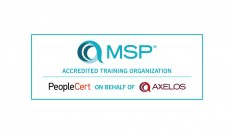MoR® 4 Practitioner Risk Management Certification Outline
This four-day MoR practitioner course will teach the following:
Unit 1: Understand the Purpose & Principles of Risk Management
Module 1: Describe Risk, Risk Management and Why Risk Management it is Used, Including the Difference and Relationship Between Risks and Issues
- What is Risk and Risk Management?
- Why Use Risk Management?
Module 2: Describe How Risk Management Supports Corporate Governance and Enterprise Risk Management, and Describe the Relationship Between them
- Corporate Governance and Enterprise Risk Management
Module 3: Explain the Different Risk Management Challenges that a Product Orientated Organisation Faces
- Challenges of Applying Risk Management
Module 4: Assess How Risk Management is Affected by Functional Orientated and Product Orientated Organisations
- Functional- and Product-Oriented Operating Models
Module 5: Describe the Purpose of Principles and Why they need to be Applied in Risk Management
- Overview of the M_o_R®4 Principles
Module 6: Apply and Analyse the Principles
- Aligns with Objectives
- Fits the Context
- Engages Stakeholders
- Provides Clear Guidance
- Informs Decision-Making
- Facilitates Continual Improvement
- Creates a Supportive Culture
- Achieves Measurable Value
Unit 2: Understand How Risk Management Applies within the 6 Perspectives
Module 1: Explain the Purpose of Risk Management in Each of the 6 Perspectives
- Purpose of Risk Management in the Strategic Perspective
- Purpose of Risk Management in the Portfolio Perspective
- Purpose of Risk Management in the Programme Perspective
- Purpose of Risk Management in the Project Perspective
- Purpose of Risk Management in the Product Perspective
- Purpose of Risk Management in the Operational Perspective
Module 2: Explain How and Why the Perspectives are Integrated
- Integrating Risk Management Across the M_o_R®4 Perspectives
- Overview of M_o_R®4 Perspectives
- Escalation and Delegation
- Aggregation
Module 3: Analyse the Calibration of Qualitative Scales Across Perspectives
- Calibration of Qualitative Scales
Module 4: Apply the ‘Strategic’ Perspective and its Related Practices and Controls, including Integrating Risk Management Across Perspectives, and the Related Roles
- Typical Roles in the Strategic Perspective
- Related Practices and Controls in the Strategic Perspective
Module 5: Apply the ‘Portfolio’ Perspective and its Related Practices and Controls, including Integrating Risk Management Across Perspectives, and the Related Roles
- Typical Roles in the Portfolio Perspective
- Related Practices and Controls in the Portfolio Perspective
Module 6: Apply the ‘Programme’ Perspective and its Related Practices and Controls, Including Integrating Risk Management Across Perspectives, and the Related Roles
- Typical Roles in the Programme Perspective
- Related Practices and Controls in the Programme Perspective
Module 7(a): Apply the ‘Project’ Perspective and its Related Practices and Controls, Including Integrating Risk Management Across Perspectives, and the Related Roles
- Typical Roles in the Project Perspective
- Related Practices and Controls in the Project Perspective
Module 7(b): Describe How Risk Management is Influenced by Different Modes of Delivery
- Linear/Sequential Project Delivery Mode
- Iterative/Agile Project Delivery Mode
- Hybrid Project Delivery Mode
- Continual Improvement
Module 8: Apply the ‘Product’ Perspective and its Related Practices and Controls, Including Integrating Risk Management Across Perspectives, and the Related Roles
- Typical Roles in the Product Perspective
- Related Practices and Controls in the Product Perspective
Module 9: Apply the ‘Operational’ Perspective and its Related Practices and Controls, Including Integrating Risk Management Across Perspectives, and the Related Roles
- Typical Roles in the Operational Perspective
- Related Practices and Controls in the Operational Perspective
Unit 3: Understand How People and Culture Influence Effective Risk Management
Module 1: Describe Why and How People and/or Cultural Considerations Influence Risk Management
- Overview of People Considerations
Module 2(a): How Engaging Stakeholders Ensures Effective Risk Management
Module 2(b): How to Address Decision Biases
- Working with Decision Bias
Module 2(c): How Individual Competence Creates and Combats Bias in Risk-Based Decision-Making
- Building Individual Competence
Module 3: Analyse How the Aspects of Risk Culture Influence Effective Risk Management
- Shaping a Supportive Risk Culture
Module 4: Assess How to Establish or Contribute to the Right Risk Culture
- Overcoming Common Challenges in Application
Unit 4: How to apply the 8 Processes of Risk Management
Module 1: Describe the Purpose and Objectives of Each Process
- Define Context and Objectives
- Identify Threats and Opportunities
- Prioritise Risks
- Assess Combined Risk Profile
- Plan Responses
- Agree Contingency
- Monitor and Report Progress
- Review and Adapt
Module 2: Apply the ‘Define the Context and Objectives’ Process, Demonstrating an Understanding
- Activities
- Techniques
- Documents to Support the Process
- Focus of Key Roles for the Process
Module 3: Apply the ‘Identify Threats and Opportunities’ Process, Demonstrating an Understanding
- Activities
- Techniques
- Documents to Support the Process
- Focus of Key Roles for the Process
Module 4: Apply the ‘Prioritise Risks’ Process, Demonstrating an Understanding
- Activities
- Techniques
- Documents to Support the Process
- Focus of Key Roles for the Process
Module 5: Apply the ‘Assess Combined Risk Profile’ Process, Demonstrating an Understanding
- Activities
- Techniques
- Documents to Support the Process
- Focus of Key Roles for the Process
Module 6: Apply the ‘Plan Responses’ Process, Demonstrating an Understanding
- Activities
- Techniques
- Documents to Support the Process
- Focus of Key Roles for the Process
Module 7: Apply the ‘Agree Contingency’ Process, Demonstrating an Understanding
- Activities
- Techniques
- Documents to Support the Process
- Focus of Key Roles for the Process
Module 8: Apply the ‘Monitor and Report Progress’ Process, Demonstrating an Understanding
- Activities
- Techniques
- Documents to Support the Process
- Focus of Key Roles for the Process
Module 9: Apply the ‘Review and Adapt’ Process, Demonstrating an Understanding
- Activities
- Techniques
- Documents to Support the Process
- Focus of Key Roles for the Process






































 Back to course information
Back to course information







 If you wish to make any changes to your course, please
If you wish to make any changes to your course, please

